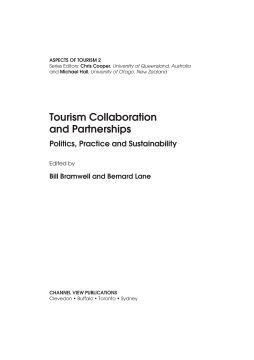
Additional Information
Book Details
Abstract
This book explores the concept, techniques and implications of establishing stakeholder collaboration in sustainable tourism. The importance of involving a wide range of stakeholders in tourism planning and management is increasingly recognised. This reflects a move to less top-down, more decentralised and more inclusive forms of governance in tourism and in other policy fields. Twenty-two leading researchers and practitioners from around the world contribute their views and expertise to this pioneering volume. Case studies examining key issues are drawn from Europe, North and South America, Australia and the Arctic. Section 1 examines the processes, patterns and typologies involved. Specific concerns addressed include stakeholder interaction and negotiation, boundary issues in regional and international partnerships and stages of collaborative development. Section 2 evaluates the effects of politics and power on the practice of collaboration. Specific topics here include the changing roles of the state in tourism governance, regime theory and tourism, the public sector and partnership development and partnerships in a post socialist context. Section 3 looks at emerging thinking and approaches, sums up key issues affecting collaborative tourism planning and suggests future research directions. The book will be invaluable for final year undergraduate tourism students, for postgraduate students in tourism, environmental studies or planning and of interest to tourism planners, managers and consultants.
The volume impresses with its coherence, continuity of discussion, consistency of concepts used, and balanced treatment of the practical and theoretical aspects of the subject.
